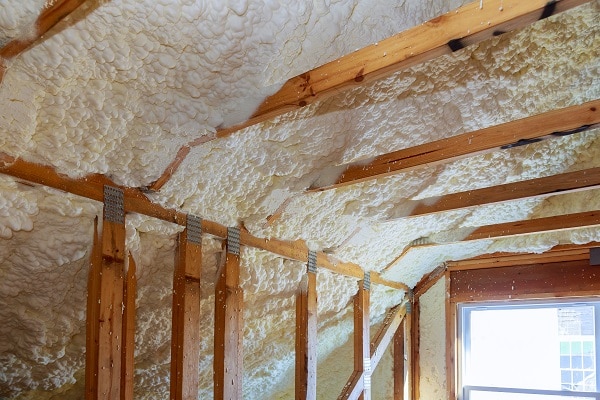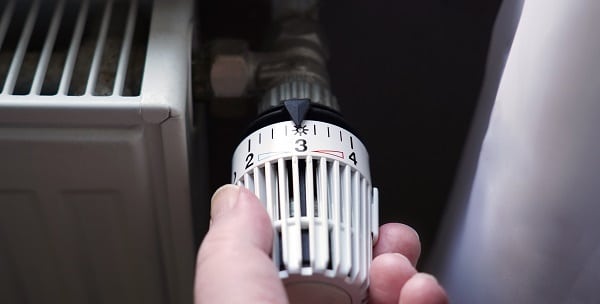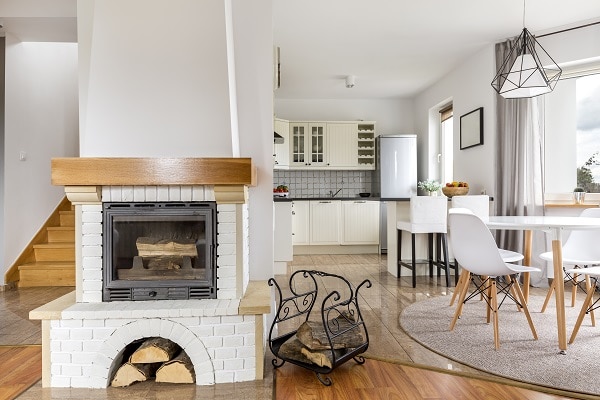Natural gas is one of the most popular energy sources in the U.S., and it is only a given considering how it is clean, reliable, comfortable, efficient, and more. The already high stats of 49% of the total American households that rely on natural gas as their prime heating source goes even higher to a whopping 69% of households in the colder regions of the country, as per reports by the U.S. Energy Information Administration.
But the high consumption of natural gas is not as warm and cozy as utility bills as it is for homes. Several people come across high bill amounts in the winter months, if not year-round, making natural gas a not so affordable and alluring option. But, there is a solution.
Following is the list of most plausible reasons for high natural gas bills, followed by ways to save money on them. So, let’s get started –
Contents
- 1 Why Is Your Bill Higher Than Expected?
- 2 Smart Thermostat
- 3 Gradually Lower The Thermostat
- 4 Check Gas Equipment To See If It Is Running Efficiently
- 5 Ensure Proper Insulation
- 6 Turn Down The Water Heater
- 7 Wear Appropriately
- 8 Limit Fireplace Use
- 9 Conduct A Home Energy Audit
- 10 Diversify Energy Usage
- 11 Switch Supplier Or Lock Rates
- 12 CONCLUSION
Why Is Your Bill Higher Than Expected?

Not one but many factors can result in spiked natural gas bills, overlooked easily amid the day-to-day activities by many. Some of these include –
- Poor insulation – An improperly insulated house provides an easy exit for the hot air your natural gas heating system produces through doors, windows, cracks, tiny openings, attic, and garage, etc. And as apparent as it is, the heat loss leads to more natural gas consumption and higher bills.
- The size of your home and weather conditions – A big house, in general, naturally has more natural gas demand for even heating, besides other factors affecting its energy efficiency. Similarly, if you happen to live in regions with long winters or sub-zero temperatures, getting high bills is standard unless you have weatherproofed the place.
- Types of equipment in use – From the number of natural gas appliances to their usage, type, wear and tear loss over the years, efficiency, etc., all play an essential role in dictating its contribution in increasing your bill amounts.
- Restricted airflow – The setup of your house with the arrangement of appliances and furniture can easily block vents and restrict heat airflow without your knowledge. This restriction will then increase the usage and heating costs as a result.
- Water temperature settings – Many people are unaware of the range of settings a water heater comes in. Therefore, the one that’s set on high becomes a steady source of excessive consumption of natural gas and spiked bills.
- Local supplier rates and supply issues – Different energy supply companies price the natural gas fuel rates differently. Therefore, if you are not so certain of the local rates, high heating bills have more to do with high-priced fuel than your usage pattern. But, again, high prices or a sudden spike might also be connected to reduced natural gas supply or high demand in the region.
Smart Thermostat

Investing in a smart thermostat might seem contradictory to what one is trying to achieve with reduced costs; however, there is no better option when considering long-term benefits and cost savings.
A smart thermostat will not only replace your old equipment but reduce the energy loss due to it. It will also assist your schedule in automatically adjusting the heat, so the bills won’t spike even if you forget.
Gradually Lower The Thermostat

If investing in a smart thermostat is not an option at the moment, do not worry, as you can still save a lot by turning down the thermostat by even a degree a day, if not more. Adjusting the thermostat to reduce heating when least needed is an excellent way to save cash, and as trivial as it may sound, each degree makes a difference. What’s more, a degree a day will also gradually get your body in the habit of a slightly cooler temperature.
Check Gas Equipment To See If It Is Running Efficiently

Maintenance of your heating system and equipment can make a significant difference on your bills simply by reducing energy loss and maintaining energy efficiency. Inspection and maintenance to regularly keep track of leaky or faulty parts will also save you from sudden high damage costs besides heating bills.
Ensure Proper Insulation

Losing the system’s heat and warmth to improper insulation is as good as paying double the money for the exact heating requirements. Apart from avoiding drafty windows, simple things like using window blinds or curtains during winters can also increase the house’s insulation level. Other spaces that must be well insulated include doors, water heater, attic, garage, etc.
Turn Down The Water Heater

Most people do not require water as hot as the temperature settings on their water heater, and without realizing it, they continue to pay for the hike in the bill the water heater brings. Comfortable showers and water warm enough for the dishes are all one needs. Therefore, acknowledging the temperature accordingly and turning down the heating will help you manage the costs better.
Wear Appropriately

The heating systems are not so that one may roam around the house in a t-shirt pretending to be summer. Well, if bills are not an issue, one may perhaps do that as well. However, this is not the case here, and therefore bundling up accordingly both inside and outside the house will reduce your dependency on the heating system to keep you warm.
A jacket or an extra blanket will not let you feel a thing even when the thermostat is turned down by a couple of degrees, eventually affecting your bills.
Limit Fireplace Use

The fireplace may seem like a safe haven during winters and also effective to most, but what it does is the exact opposite of keeping the surroundings warm. A good amount of heat produced by an in-house fireplace escapes through the chimney on top, leaving behind nothing but a vacuum of air which then the air sucked through cracks and gaps from the outside fills.
This cold air entering the vacuum forces your heating system to work harder to maintain a steady warm temperature, directly linking energy consumption and costs.
Conduct A Home Energy Audit

If you are unsure of where the energy loss is happening inside your home or what’s causing the high energy bills, you may as well go for a home energy audit. It will act as the maintenance routine for your home as well as help you understand and strategize better for efficiency under professional advice and guidance.
Diversify Energy Usage

If a particular energy source seems to fit your routine and consumption patterns better economically and requirement-wise, it is better to switch to it. For example, electric heat pumps and solar panels to assist electricity usage are an excellent way to boost efficiency compared to natural gas.
Switch Supplier Or Lock Rates

If nothing works out, switching suppliers or locking rates are the last two resorts that can help you plan better without having to give up on your comfort. Nonetheless, fluctuations in the natural gas rates are only a typical response to supply and demand; therefore, look into what’s causing it before deciding.
CONCLUSION
High natural gas bills are a matter of concern for many individuals, but that does not necessarily mean that one must cut down their basic heating requirements to accommodate it. Simple changes in the lifestyle and being cautious of utilizing the energy efficiently not to waste any are good enough in cutting down costs.
If, however, the problem with high natural gas bills persists, consult the energy supply company for more information and discuss matters to resolve any. Happy Scrolling!



